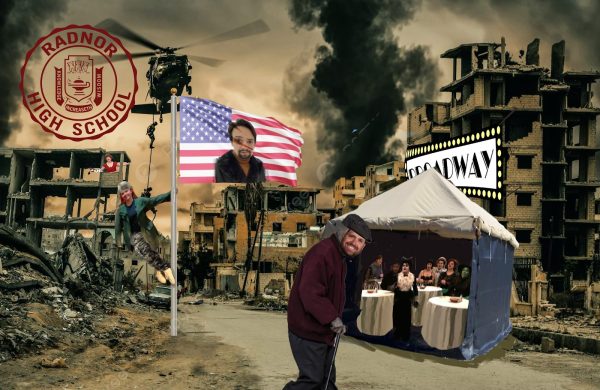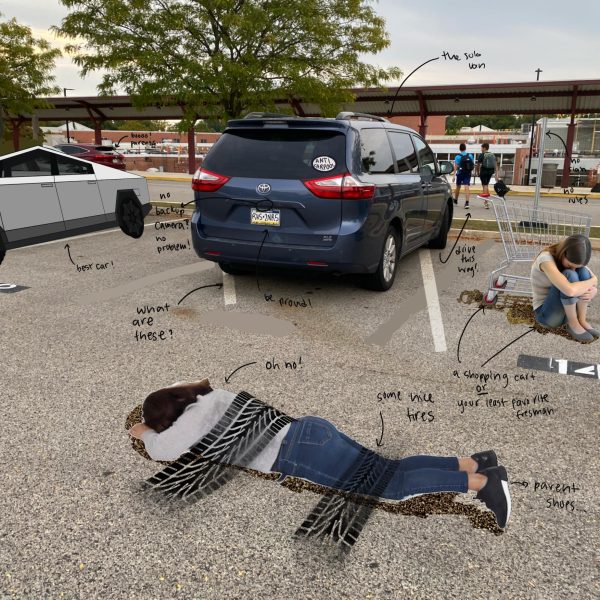So This Is How Liberty Dies

Democracy is Glassware
January 20, 2021
“YESTERDAY, December 7, 1941 a date which will live in infamy, the United States of America was suddenly and deliberately attacked by naval and air forces of the Empire of Japan,” Franklin Delano Roosevelt said.
January 6, 2021 can be added to that very short list of infamous dates in American history.
The last time the Capitol was attacked was over 200 years ago when British forces burned the Capitol in the War of 1812. No single word can capture the scope and magnitude of what happened on that day. Words or phrases such as “coup,” “appalling,” “attack on our democracy,” and “domestic terrorism” come close, but cannot accurately render the action’s gravitas.
It is tempting to take democracy for granted. After all, certain traditions like “conceding an election loss,” “peacefully transitioning power,” “speaking in a unifying, calming, inspiring manner and being as truthful as possible,” and of course, “accepting an election outcome,” are seen as normal and expected for a president. Only now and in the last year did we learn that these norms were all stamped with “handle with care” stickers.
Throughout the presidency of Donald J. Trump, and especially in the last year, the nation witnessed the throwing of presidential precedents into the dumpster fire, including, “accepting the election outcome.” A day rarely went by since the election without Trump saying, “I WON THIS ELECTION, BY A LOT!” or some variance of that, or shouting fraud where it does not exist.
Trump supporters on the 6th of January, or more accurately rioters and looters, besieged the Capitol believing the baseless claims of fraud. And this action disrupted the official counting of the electoral votes. One can see the physical damage done: a podium stolen, windows broken, multiple intruders in the Senate and House chambers, and five people dead. Many rioters broke into the offices of Congresspeople — one of them boasted about stealing mail from Speaker Nancy Pelosi’s office. Another one stole a lectern for Speaker Pelosi and similarly boasted about it.
Normally, the general public needs to pass metal detectors and other security to just get in, and the offices are places that the public couldn’t even get into. Despite themselves rioting and damaging property, they condemn it when it is anyone else doing it.
These scenes truly are “banana republic crap.” In history classes, these scenes of treason and government overthrow are always associated with any country that’s not the United States of America. Maybe it is the Reichstag fire in 1933 as the Nazis took over Germany; maybe it is the Fascists in Italy during that time period taking over Italy; maybe it is Turkey in 2016 when the military tried to overthrow the Turkish government; maybe it is the leader of Belarus clinging desperately onto power with frequent violent force last year. When it happened in America on January 6, our collective jaws dropped.
But the attack should have been no surprise. The DHS has warned since last year that white supremacy constitutes the largest threat to America — not “Antifa and the left.” Trump is directly fueling the kind of threat that is white supremacy and hate. A few months ago, he told the Proud Boys, a hate group, “stand back and stand by.” Two years ago, he berated four Congresswomen, telling them to “go back to their own countries.” In 2017, after the hate-filled Charlottesville rally, Trump said of white supremacists, “very fine people on both sides,” equating them with counter-protesters against hate. On the very same day of the Capitol attack, he urged his supporters to go there, saying he will “never concede.” As it turned violent, this is all he had to say: “This was a fraudulent election, but we can’t play into the hands of these people. We have to have peace. So go home. We love you; you’re very special.”
We love you; you’re very special. This came from the same president who enabled a hate group to terrorize people, the same president who at the very least struggles to condemn white supremacy, and the same president who has, at one point in his campaign, bragged that he can shoot someone on Fifth Avenue and not lose voters. It’s not surprising.
Yet democracy still prevailed, and the results were still certified on the same day. Virtually every court challenge against the fair and secure election results has joined the same dumpster as presidential precedents. People turned out in droves with about 160 million people voting in total. And states courageously and dutifully counted the votes.
Sadly, this is not an excuse to think that democracy is immune to such attacks. The attempted coup could have very well succeeded (many coups around the world have, like the Nazis eventually did in Germany). Another person just like Trump can run and win in 2024 and much more competently lead rioters into the Capitol. Whoever that person may be, they may succeed, and democracy may as well die. While we’d all like to assume that the new leadership will make sure this won’t happen, the work to safeguard our democracy and prevent another coup is far from over. Someday, someone can pick up where Trump failed and succeed in ending democracy.
Holding Trump fully accountable by the 25th Amendment, impeachment, or criminal indictment is just step one of preventing a coup, but further action ought to be taken. Now, as just typical high schoolers, what can we do? After all, we’re not senators, representatives, judges, cabinet members, or government officials, or someone well-known.
First, acknowledge the fact that a coup can happen here in America. It is a hard but existing truth. Many of us know the thinking, “If it can happen to this person, it can happen to me.” For example, anyone can be bullied, anyone can have a college admission rescinded, and more. This thinking applies here, too. If a coup can happen in, say, Turkey, it can very well happen here.
Second, people can focus on the values this country holds dear: freedom, democracy, liberty, justice, and more. While it is tempting to focus on just one person who is the main cause of the coup, focusing on a wider, shared value concentrates on the true root of the problem. While America is more polarized now than any time before in recent history, Americans still share at least some values — and that can be instrumental in uniting once more to stop a coup or any attack on democracy. Coups succeed best when the people are divided — thus, we must unite.
Third, remember that the government works for the people, not conversely. Politics can be a really touchy topic, but the government is for the people. We the people, our Constitution says. So feel free to talk about politics and get educated; democracies thrive when we’re all educated and open.
The articles I linked here can provide some further resources and ways to stop a coup and defend our democracy. Many of these articles were written before Election Day, yet some strategies may still work. You can also read this article to learn about how coups come to be and how they succeed, and how they succeed in toppling a government or democracy.
January 6, 2021, saw the culmination of a president who was doing all he could to overturn an election result that has millions of green shields with check-marks stamped on it. It raised our eyebrows as a warning that this can happen in the future.
Democracy is glassware. What do you do when you handle glassware?






